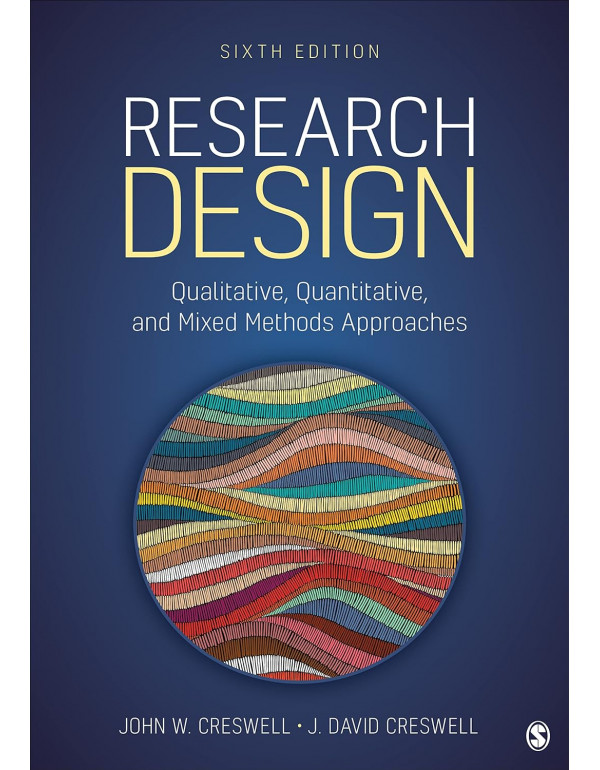Tags: Research Design *US PAPERBACK* Qualitative, Quantitative, and Mixed Methods Approaches, 6th Ed. by John Creswell - {9781071817940} {1071817949}
Research Design *US PAPERBACK* Qualitative, Quantitative, and Mixed Methods Approaches, 6th Ed. by John Creswell - {9781071817940} {1071817949}
Navigating the Research Landscape: A Guide to Design
For anyone embarking on a research journey, "Research Design: Qualitative, Quantitative, and Mixed Methods Approaches" by John W. Creswell and J. David Creswell serves as an invaluable roadmap. This comprehensive guide delves into various research approaches, equipping you with the knowledge and tools to design, conduct, and report your research effectively.
Charting Your Course:
- Part 1: Setting the Stage: Begin by grasping the foundational concepts of qualitative, quantitative, and mixed methods research. Explore the philosophical assumptions and theoretical frameworks that shape each approach, and delve into essential concepts like reliability, validity, and generalizability.
- Part 2: Qualitative Inquiry: Embark on an in-depth exploration of qualitative research strategies, including ethnography, case studies, and narrative inquiry. Master various data collection methods like interviews, observations, and document analysis, and gain insights into data analysis and interpretation processes.
- Part 3: Quantitative Exploration: Demystify the logic and characteristics of quantitative research. Discover the intricacies of survey design, experimental research, and other quantitative methods, and learn how to effectively analyze and interpret your data using statistical procedures.
- Part 4: Merging Methods: Explore the exciting world of mixed methods research, where qualitative and quantitative approaches converge. Discover various models and designs for combining these methods, learn strategies for integrating data from different sources, and gain an understanding of the unique challenges and strengths of mixed methods research.
- Part 5: Communicating Your Findings: Craft clear, concise, and impactful research reports with the guidance provided in Part 5. Delve into specific recommendations for each section of your report, from crafting an engaging introduction to presenting your findings and drawing insightful conclusions. Ethical considerations in research reporting are also addressed.
Key Strengths:
- Comprehensiveness & Structure: The book offers a vast array of research topics and methodologies presented in a clear and accessible manner.
- Practical & Theoretical Integration: It goes beyond "how-to" by providing the underlying theoretical foundations of each research approach.
- Diverse Examples: Real-world research studies across various disciplines enrich the learning experience.
- Ethical Focus: The importance of ethical conduct throughout the research process is emphasized.
